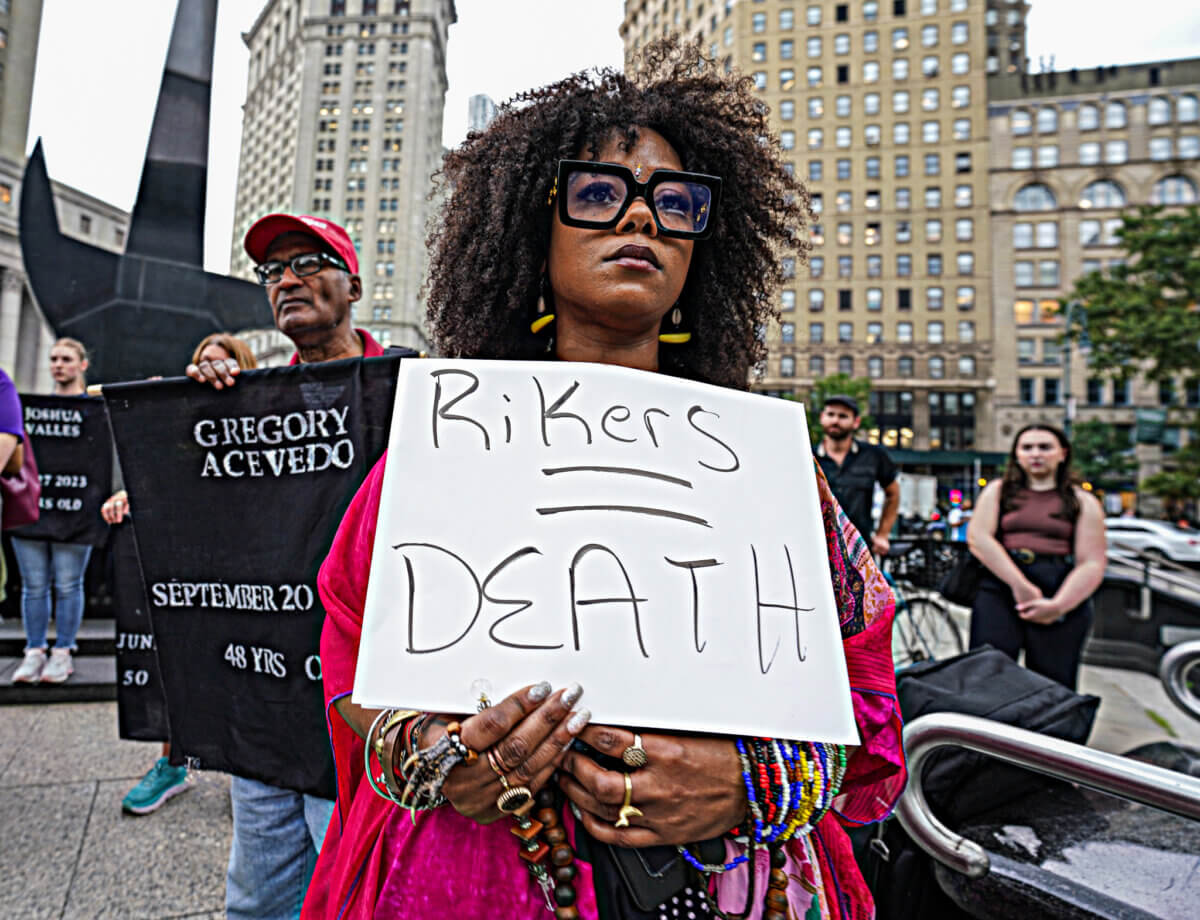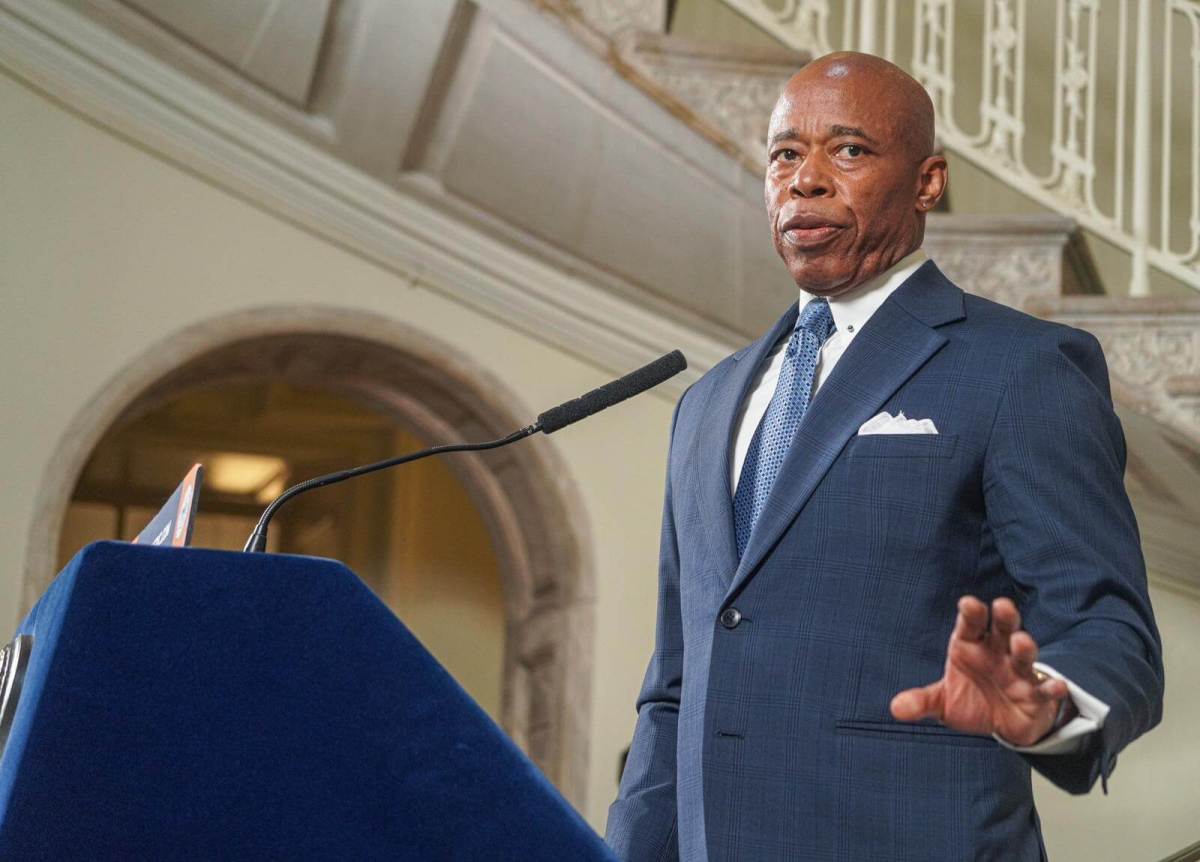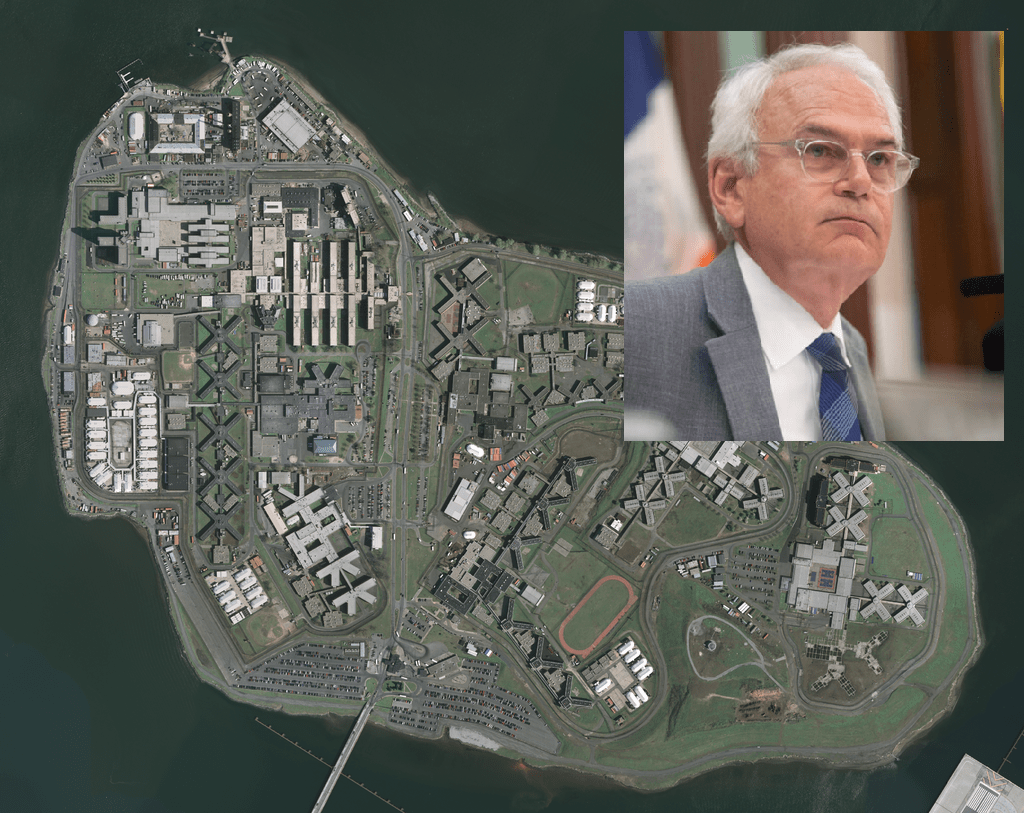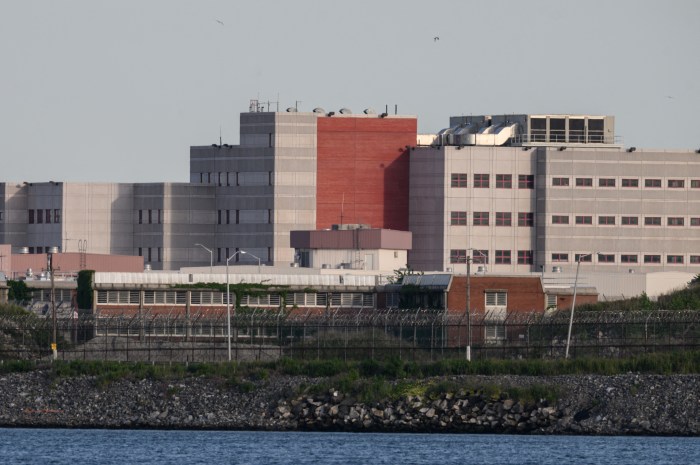Almost exactly four years before Rikers Island is set to close, Mayor Eric Adams declared he wants the City Council to go back to the drawing board and come up with a new plan for shuttering the troubled jail complex.
During a question and answer event hosted by New York Law School on Aug. 29, Adams said he believed the plan to close Rikers by Aug. 31 2027 was “flawed” from the beginning and that there was no “plan B.”
That plan, which would see Rikers shut down and replaced with four borough-based jails across the city, was passed by the last City Council during the final year of former Mayor Bill de Blasio’s tenure and inherited by Adams. The mayor and his Department of Correction Commissioner Louis Molina have publicly questioned the current plan for months.
Mayor Adams said his qualms with the current Rikers closure roadmap include the island’s rising population and ballooning costs of building the four borough-based jails — with four jails set to be constructed and opened in Brooklyn, the Bronx, Manhattan and Queens, one per borough.
“We must sit down with the City Council and lay out the facts,” Adams said. “This is what it is going to cost. Here’s how we could do this. You are our partners. Let’s resolve this issue.”
Adams argues that with the current jail population sitting just below 6,000, and projected to rise above that number, the four new jails, which will have a combined capacity of 3,300, won’t be able to fit over 2,000 inmates. He said putting 2,000 individuals currently in Rikers back on the streets could endanger public safety — though only a small fraction of those incarcerated on the island have been convicted of a crime.
The mayor later Tuesday claimed that due to recent state level bail reforms, which have undergone several rollbacks, the remaining population on Rikers Island is comprised of “extremely dangerous people.”
“Are we as a city willing to say that 2,000 extremely dangerous people, because we don’t have enough space, we’re going to turn them back onto the streets and back the communities that they committed these crimes in in the first place?” he asked during an unrelated Tuesday afternoon press conference.
When asked by amNewYork Metro if he could describe what a new Rikers plan might look like, Adams said the council needs to come up with a proposal that “gets the reform we’re looking for and the safety we’re looking for,” but didn’t go into specifics. But he said that if the council wants to stick with the current plan, he will abide by it.
“Now if the law says that ‘Eric you have to do A,’ I’m going to do A, I’m never going to break the law,” Adams said. “Based on my partners, I have to go with whatever the outcome is. I’m not going to get my way on everything.”

Many council members, however, have expressed no appetite for deviating from the present closure timeline. Council Speaker Adrienne Adams even made a point in her State of the City address earlier this year of forcefully calling for the shuttering of Rikers by 2027.
“The law is clear that Rikers must close by 2027 and the Council is committed to ensuring the City adheres to its legal mandate,” a council spokesperson said in a statement. “The responsibility of every mayoral administration is to implement the laws and the plan to close Rikers is no different.”
Criminal justice dvocates and council members have doubled down on their demands to close Rikers on time as deaths and violence at the complex have spiked since Adams took office at the start of 2022. Overall, 27 people have died in DOC custody since Adams became mayor.
Council Member Carlina Rivera (D-Manhattan), who chairs the Committee on Criminal Justice, said in a statement the Adams administration “bears the burden” of showing it has “marshaled every possible resource” to close Rikers by the legally required deadline. That includes reducing the jail population to suitable levels, cutting construction times for the new jails and transitioning staff off of the island.
“A failure to implement this law is not only unacceptable, it’s an alarming signal that an overreliance on incarceration will become this mayoral administration’s legacy,” Rivera said. “Rikers is an ongoing humanitarian crisis that subjects both staff and incarcerated people to danger, and this body and frankly, every stakeholder, should remain firmly committed to working with the administration to identify ways we can ensure that Rikers closes on time.”
Read more: UNO searches for first chief player in national campaign

































